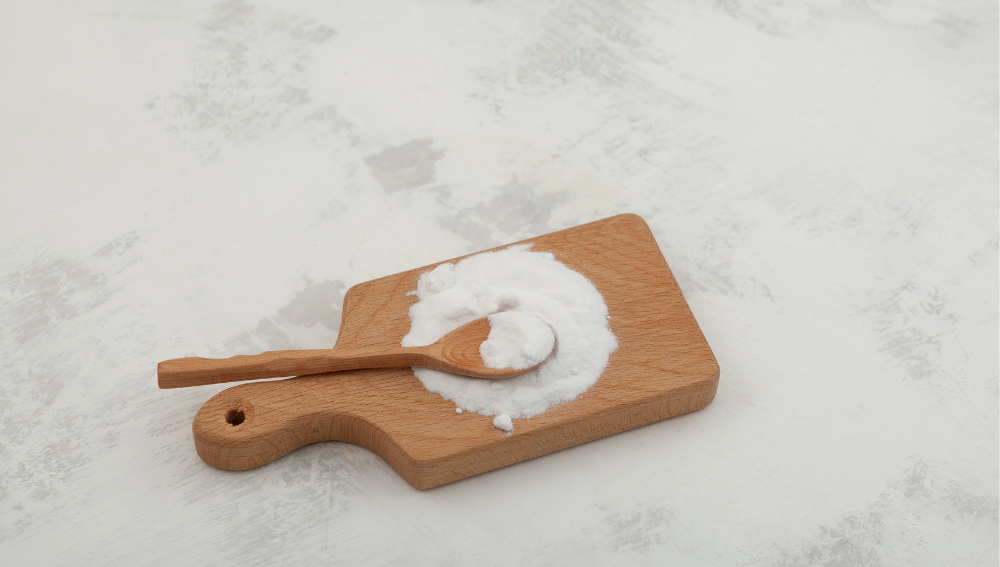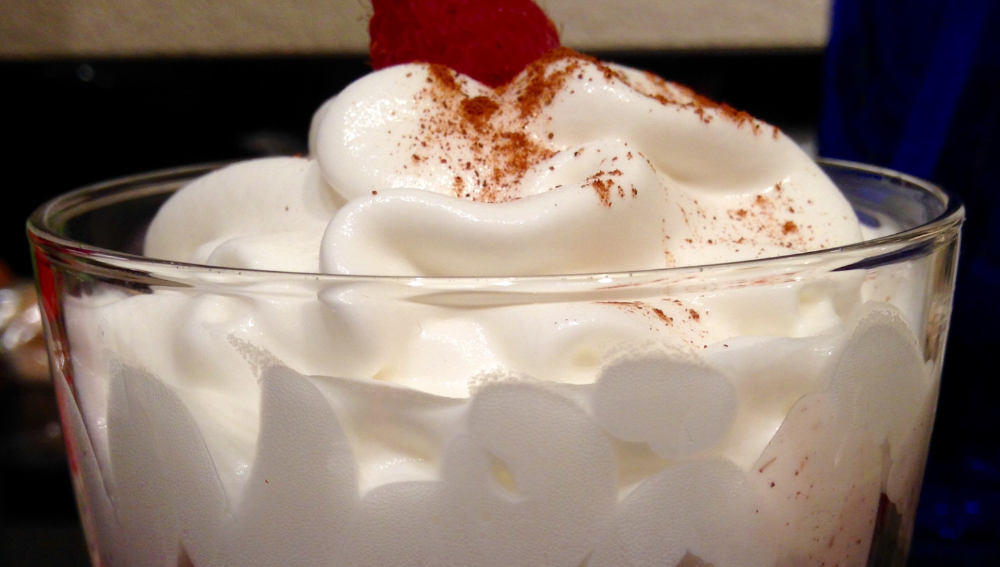Can you marinate frozen chicken? This is a common question among home cooks who want to save time by marinating chicken straight from the freezer.
While it’s possible to marinate frozen chicken, there are some things you need to consider to ensure that it’s safe and delicious.
In this article, I will discuss the ins and outs of marinating frozen chicken, including the thawing and marinating process, marinade preparation, practical tips and tricks, and potential risks and precautions.

Understanding chicken marination is crucial to achieving a flavorful and tender chicken. Marinating involves soaking the chicken in a mixture of spices, herbs, acidic liquids, and oils to break down the connective tissues and infuse the meat with flavor.
When done right, marinating can turn a plain chicken breast into a mouth-watering dish. However, marinating frozen chicken requires a slightly different approach than marinating fresh chicken.
Key Takeaways
- Marinating frozen chicken is possible, but requires proper thawing and marinating process to ensure safety and flavor.
- Marinade preparation plays a crucial role in marinating frozen chicken.
- Practical tips and precautions should be observed to avoid potential risks.
Understanding Chicken Marination
Marination Basics
Marination is the process of soaking meat in a flavorful liquid known as a marinade. The marinade is typically made up of an acidic ingredient, such as vinegar or citrus juice, along with oil, herbs, spices, and other flavorings.
The acidic ingredient helps to tenderize the meat by breaking down its fibers, while the other ingredients infuse it with flavor.
Marinating chicken is a popular way to add flavor and moisture to the meat. It can be done with fresh or thawed chicken, but can you marinate frozen chicken?
The answer is yes, but it’s important to take certain precautions to ensure that the chicken is safe to eat and that the marinade is effective.
Role of Marinades in Flavoring
Marinades play a crucial role in adding flavor to chicken. The acidic ingredient in the marinade not only tenderizes the meat, but also helps to infuse it with flavor.
The longer the chicken is marinated, the more flavor it will absorb.
In addition to the acidic ingredient, marinades typically contain oil, herbs, spices, and other flavorings. These ingredients work together to create a complex and delicious flavor profile.
Some popular flavor combinations for chicken marinades include lemon and garlic, teriyaki, and honey mustard.
The Science Behind Marination
The science behind marination is based on the principle of osmosis. When meat is submerged in a marinade, the salt and acid in the marinade draw out the moisture from the meat.
As the meat loses moisture, it creates space for the marinade to be absorbed, resulting in a more flavorful and tender piece of meat.
However, it’s important to note that not all marinades are created equal. Some marinades are more effective than others at tenderizing and flavoring meat.
Marinades that are high in acid, such as those made with vinegar or citrus juice, are the most effective at tenderizing meat.
Marinades that are low in acid, such as those made with oil or soy sauce, are less effective at tenderizing meat but can still add flavor.
In conclusion, marinating chicken is a great way to add flavor and moisture to the meat. While it is possible to marinate frozen chicken, it’s important to take certain precautions to ensure that the chicken is safe to eat and that the marinade is effective.
By following these guidelines and experimenting with different flavor combinations, you can create delicious and flavorful chicken dishes that are sure to impress.
Marinating Frozen Chicken
When it comes to marinating frozen chicken, there are a few things to consider.
In this section, I will cover the safety concerns, the effect on texture and flavor, and the marinating time for frozen chicken.
Is it Safe?
Yes, it is safe to marinate frozen chicken, but it is important to follow proper thawing procedures before marinating. Thawing frozen chicken in the refrigerator is the safest method, as it prevents the growth of harmful bacteria.
It is recommended to thaw frozen chicken in the refrigerator for at least 24 hours before marinating. Never thaw chicken at room temperature, as it can be exposed to harmful bacteria.
Effect on Texture and Flavor
Marinating fresh chicken is generally preferred, as it allows the marinade to penetrate the meat more effectively.
However, marinating frozen chicken can still yield a tender texture and nice flavor. The marinade will not be able to penetrate the meat as effectively as with fresh chicken, but it will still add flavor to the surface of the chicken.
Marinating Time for Frozen Chicken
When marinating frozen chicken, it is important to adjust the marinating time accordingly. Since the chicken is already frozen, it will take longer for the marinade to penetrate the meat.
It is recommended to marinate frozen chicken for at least 24 hours in the refrigerator. This will give the marinade enough time to penetrate the surface of the chicken and add flavor.
In summary, marinating frozen chicken is safe as long as proper thawing procedures are followed.
While marinating fresh chicken is preferred, marinating frozen chicken can still yield a tender texture and nice flavor. Adjusting the marinating time to at least 24 hours in the refrigerator is recommended for best results.
Thawing and Marinating Process
When it comes to marinating frozen chicken, it’s important to follow the correct thawing process to ensure the chicken is safe to eat and the marinade is absorbed properly.
In this section, I will cover the steps for defrosting chicken, marinating thawed chicken, and freezing marinated chicken.
Defrosting Chicken
Before marinating frozen chicken, it’s essential to defrost it properly to avoid any risk of foodborne illness. Here are some methods for defrosting chicken:
- In the fridge: This is the safest and most recommended method. Simply place the frozen chicken in a container or on a plate and leave it in the fridge to thaw for 24 hours or until fully defrosted.
- In the microwave: If you’re short on time, you can use the microwave to defrost the chicken. Place the frozen chicken on a microwave-safe dish and use the defrost setting, following the manufacturer’s instructions. Be sure to cook the chicken immediately after thawing using this method.
- In cold water: To defrost the chicken quickly, you can submerge the frozen chicken in a leak-proof plastic bag in a bowl of cold water. Change the water every 30 minutes until the chicken is fully thawed. Be sure to cook the chicken immediately after thawing using this method.
Marinating Thawed Chicken
Once the chicken is fully thawed, it’s time to marinate it. Here are some tips for marinating thawed chicken:
- Pat the chicken dry: Before marinating, pat the chicken dry with a paper towel to remove any excess moisture. This will help the marinade stick better to the chicken.
- Use a flavorful marinade: Choose a marinade that complements the flavor of the chicken. You can use store-bought marinades or make your own using herbs, spices, and oils.
- Marinate for at least 30 minutes: For optimal flavor absorption, marinate the chicken for at least 30 minutes. You can also marinate it overnight in the fridge for even more flavor.
Freezing Marinated Chicken
If you want to freeze marinated chicken for later use, here are some tips:
- Use freezer-safe containers: Make sure to use freezer-safe containers to prevent freezer burn and keep the chicken fresh.
- Label and date the containers: Be sure to label and date the containers so you know what’s inside and when it was frozen.
- Freeze for up to 2 months: Marinated chicken can be frozen for up to 2 months. When you’re ready to use it, thaw it in the fridge overnight and cook it as usual.
Overall, while you can marinate frozen chicken, it’s best to thaw it properly before applying the marinade for optimal flavor absorption.
Following proper food safety guidelines and using flavorful marinades can create delicious and moist chicken dishes, even when starting with frozen meat.
Marinade Preparation
Marinating frozen chicken is a great way to add flavor to your meal. However, it is important to prepare the marinade correctly to ensure that the chicken is safe to eat and that it absorbs the flavors you want.
In this section, I will cover the basics of marinade preparation, including choosing ingredients, creating marinade recipes, and marinating techniques.
Choosing Ingredients
When choosing ingredients for your marinade, it is important to consider the flavors you want to achieve and the type of chicken you are using.
Some common ingredients for marinades include oil, lemon, garlic, vinegar, herbs, and spices. You can use a variety of oils, such as olive oil or cooking oil, to add flavor and help the marinade penetrate the chicken.
Acidic ingredients like vinegar, citrus, or lime can help tenderize the meat and add tanginess to the flavor. Garlic, herbs, and spices can add depth and complexity to your marinade.
Creating Marinade Recipes
Creating a marinade recipe is all about experimentation and finding the flavors that you enjoy. You can start with a basic recipe and adjust it to your liking.
A basic marinade recipe includes oil, an acidic ingredient, and herbs and spices. For example, you can mix olive oil, lemon juice, garlic, and herbs like oregano and thyme to create a Mediterranean-inspired marinade.
You can also add soy sauce, honey, or mustard to create a savory and sweet marinade. When creating your marinade recipe, make sure to balance the flavors and adjust the amount of each ingredient to your liking.
Marinating Techniques
When marinating frozen chicken, it is important to let the chicken thaw completely before adding the marinade. This will ensure that the marinade can penetrate the chicken and that the chicken is safe to eat.
Once the chicken is thawed, you can place it in a resealable plastic bag or a shallow dish with the marinade. Make sure that the chicken is fully coated in the marinade and that there is no air in the bag.
You can marinate the chicken in the refrigerator for at least 30 minutes or up to 24 hours, depending on the recipe.
If you are using an acidic marinade, like one with vinegar or citrus, it is important not to marinate the chicken for too long, as it can break down the meat and make it mushy.
Finally, when cooking the chicken, make sure to discard any leftover marinade to avoid cross-contamination.
In summary, preparing a marinade for frozen chicken is easy and fun. By choosing the right ingredients, creating a delicious recipe, and using proper marinating techniques, you can elevate your chicken to the next level.
Practical Tips and Tricks

Marinating frozen chicken is a great way to prepare a quick and easy meal, but it requires some extra care and attention to ensure the best results. Here are some practical tips and tricks to help you marinate frozen chicken like a pro.
Marinating Different Cuts
Different cuts of chicken require different marinating times. Boneless chicken breasts and thighs are the easiest to marinate, as they absorb flavors quickly and can be ready in as little as 30 minutes.
For wings and legs, you’ll want to marinate them for at least 2 hours to ensure the flavor penetrates the meat thoroughly.
If you’re marinating a whole chicken, you’ll want to pound it to an even thickness to ensure that it cooks evenly.
Maximizing Flavor Absorption
To maximize flavor absorption, make sure to thaw your frozen chicken completely before marinating it. Thawing your chicken in the refrigerator overnight is the best way to do this.
Once your chicken is thawed, use a fork to pierce the meat all over to allow the marinade to penetrate more deeply. You can also salt your chicken before marinating it to help it absorb more liquid.
Safety Measures
When marinating chicken, safety is always a top priority. Always use a clean, food-safe container to marinate your chicken, and refrigerate it immediately.
If you’re using a freezer bag, make sure it’s sturdy enough to hold the liquid and chicken without leaking. When you’re done marinating, discard any leftover liquid and never reuse it.
If you want to freeze marinated chicken, do it before you marinate it, as freezing can damage the texture of fresh chicken.
Overall, marinating frozen chicken is a great way to prepare a quick and easy meal. With these tips and tricks, you’ll be able to create flavorful, tender chicken that’s perfect for grilling, baking, or frying.
Experiment with different marinades to find your favorites, such as thyme, lemon, garlic, and more. Happy marinating!
Potential Risks and Precautions

Marinating frozen chicken can be a convenient way to add flavor to your meals without having to wait for the chicken to defrost. However, there are some potential risks and precautions that you should be aware of before you marinate frozen chicken.
Bacterial Contamination
One of the biggest risks of marinating frozen chicken is the potential for bacterial contamination. Harmful bacteria can grow rapidly on chicken that is not stored properly, which can lead to foodborne illnesses.
To minimize the risk of bacterial contamination, it is important to handle the chicken safely. Always wash your hands before and after handling raw chicken, and use separate cutting boards and utensils for raw meat and other foods.
Additionally, make sure to marinate the chicken in the refrigerator, not at room temperature. This will slow down the growth of harmful bacteria and help keep your chicken safe to eat.
Over-Marination
Another risk of marinating frozen chicken is over-marination. When chicken is marinated for too long, the acid in the marinade can break down the proteins in the meat and make it mushy.
To avoid over-marination, make sure to follow the recommended marinating times for your recipe. If you’re unsure, a good rule of thumb is to marinate chicken for no more than 24 hours.
Proper Storage
Finally, it’s important to store marinated chicken properly to prevent bacterial contamination and ensure that it stays fresh. If you’re not planning to cook the chicken right away, store it in the refrigerator for up to two days.
If you want to freeze marinated chicken, make sure to do so before the expiration date on the chicken. Frozen chicken can be stored for up to six months in the freezer.
When you’re ready to cook the chicken, make sure to discard any leftover marinade. The marinade can contain harmful bacteria from the raw chicken, so it’s important to use fresh marinade for cooking.
By following these precautions, you can safely marinate frozen chicken and enjoy delicious, flavorful meals.
Frequently Asked Questions
Can you marinate chicken without thawing it first?
Yes, you can marinate chicken without thawing it first. However, keep in mind that marinating frozen chicken may result in uneven flavor absorption. It is best to defrost the chicken first and then marinate it for optimal flavor.
How long can you marinate chicken for?
The length of time you can marinate chicken depends on the type of marinade and the cut of chicken. Generally, it is best to marinate chicken for at least 30 minutes and up to 24 hours.
However, some marinades may require a longer marinating time to fully infuse the chicken with flavor.
Is it safe to marinate frozen chicken?
Yes, it is safe to marinate frozen chicken as long as it is properly stored and handled. However, keep in mind that marinating frozen chicken may result in uneven flavor absorption and may take longer to fully marinate.
It is recommended to defrost the chicken first before marinating it.
Can you marinate chicken and then freeze it?
Yes, you can marinate chicken and then freeze it for later use. However, keep in mind that freezing and thawing the chicken may affect the texture and flavor of the meat.
It is best to use fresh chicken for optimal results.
What’s the best store-bought chicken marinade?
There are many store-bought chicken marinades available, and the best one for you will depend on your personal taste preferences.
Some popular options include Italian dressing, teriyaki sauce, and lemon herb marinade. It is recommended to read the ingredients list and nutrition information before purchasing a store-bought marinade.
Can you defrost chicken in the microwave then marinate it?
Yes, you can defrost chicken in the microwave and then marinate it. However, keep in mind that microwaving may partially cook the chicken and may affect the texture of the meat.
It is recommended to defrost the chicken in the refrigerator for best results.







